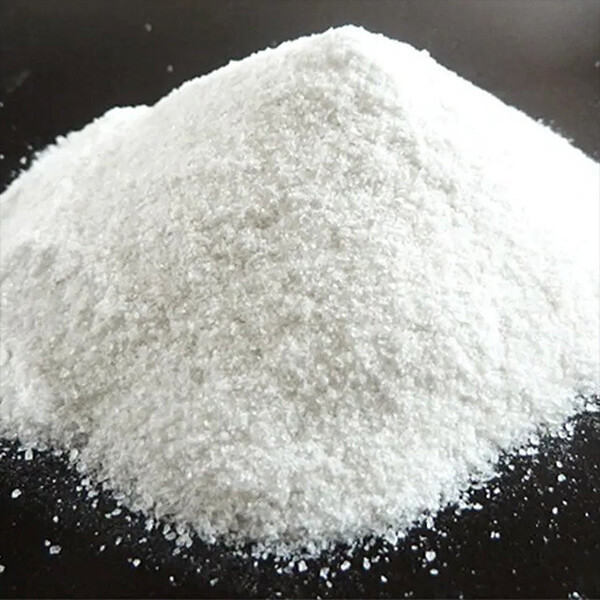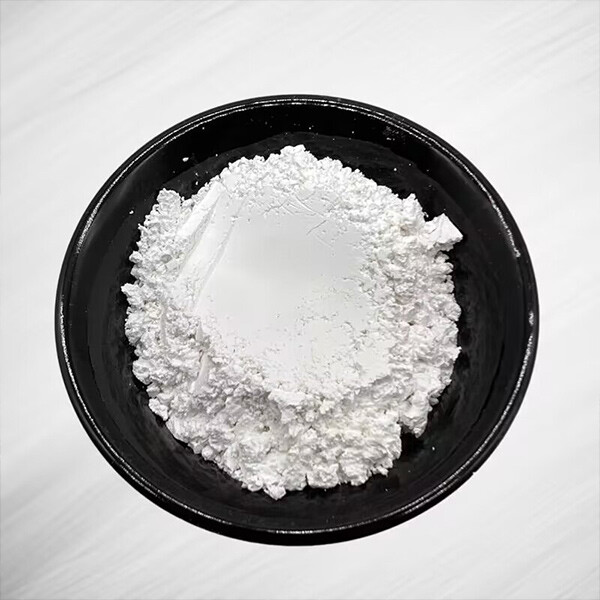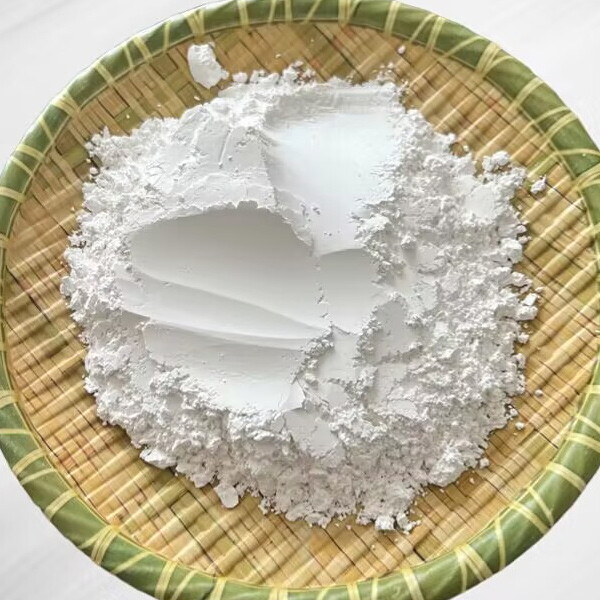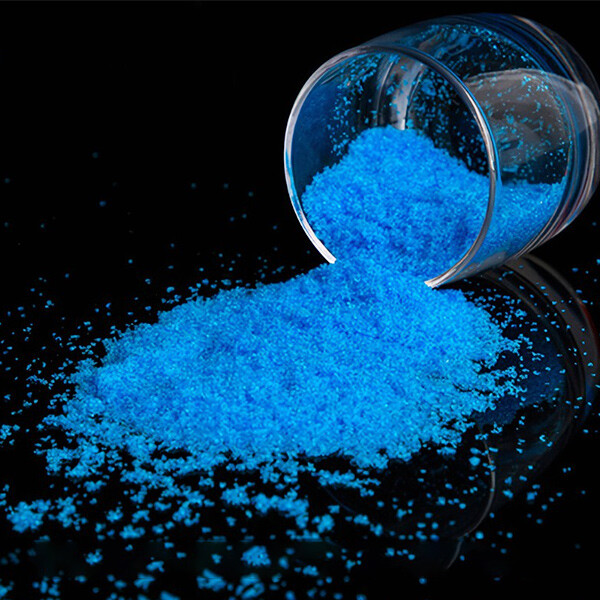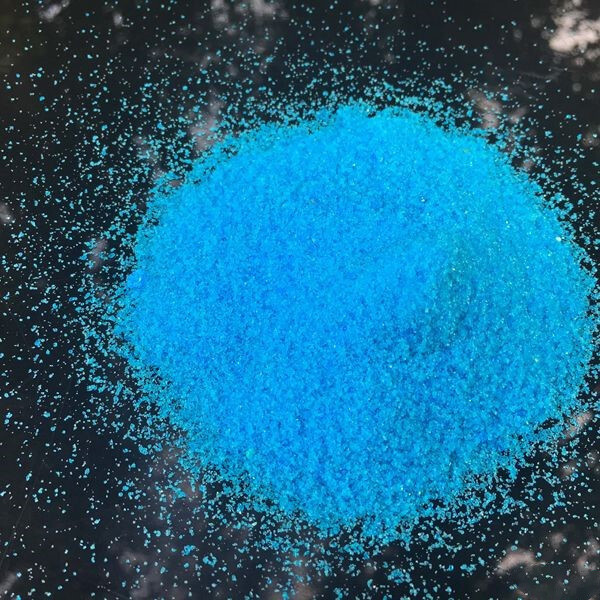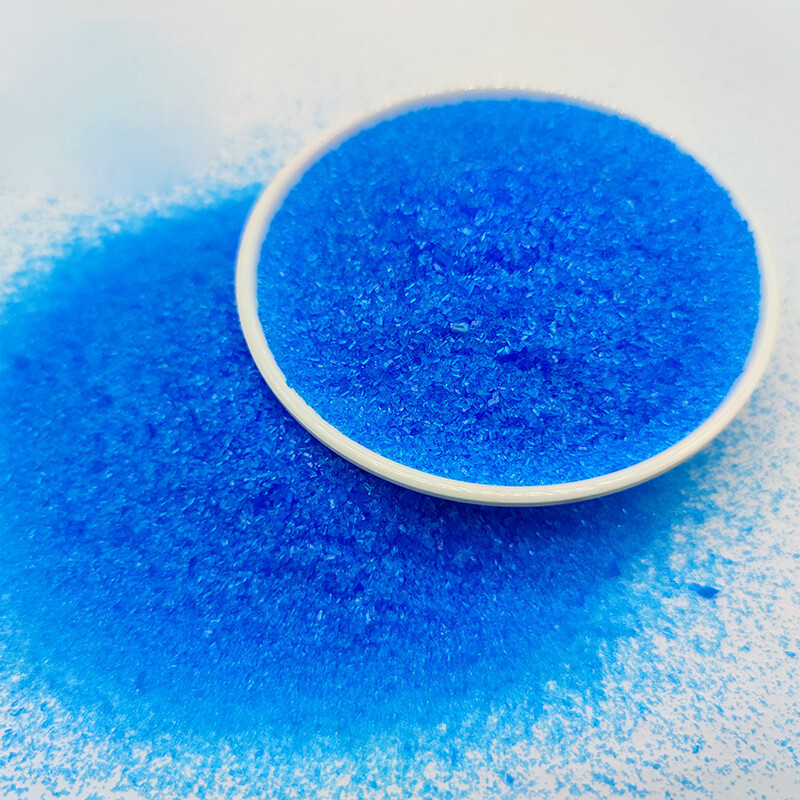
PRODUCTS
PRODUCTS
Product Details
PRODUCT DESCRIPTION
The physical and chemical properties of copper sulfate pentahydrate are transparent dark blue crystals or powders, with a solubility of 316g/l in water at 0℃, insoluble in ethanol, and almost insoluble in most other organic solvents. It is jewel green in glycerol, slowly weathers in the air, loses two molecules of crystal water when heated (30℃), and loses water at 110℃ to become a white hydrate (CuSO4×H2O). It is yellow or green when it contains many impurities and has no odor. This product is highly corrosive to iron. Copper sulfate is both a fertilizer and a commonly used fungicide. Bordeaux mixture, copper soap solution, and copper ammonium preparations are prepared from copper sulfate, quicklime, soap, and ammonium bicarbonate.
CHEMICAL PROPERTIES
Reactivity: Copper sulfate can react with many compounds, including acids, alkalis, metals, etc. It can react with strong bases, such as reacting with strong bases to generate corresponding copper salts and water. When reacting with metals such as iron, iron will replace copper in the order of metal activity.
Coordination ability: The copper ions (Cu2+) in copper sulfate have strong coordination ability and can form complexes with a variety of ligands. This property makes copper sulfate widely used in analytical chemistry, medicine and chemical synthesis, such as as a copper source in coordination chemistry and for the preparation of various copper complexes.
Redox reaction: The redox reaction involving copper sulfate is particularly important in the development of electroplating, batteries and energy storage materials. Copper ions (Cu2+) can be reduced to metallic copper in the reaction or used as an oxidant for the oxidation of other substances.
Stability: Anhydrous copper sulfate is relatively stable under dry conditions, but it absorbs moisture and converts to a pentahydrate form in a humid environment. This transformation reflects its chemical sensitivity to environmental conditions.
Hydrolysis: When copper sulfate dissolves in water, it is accompanied by a certain degree of hydrolysis, which affects the pH of the solution. Although the degree of hydrolysis of copper sulfate is not as significant as that of some other metal salts, increased acidity can still be observed at high concentrations.
Online Consultation
Related Suggestion
Get in Touch
*We respect your confidentiality and all information are protected.
